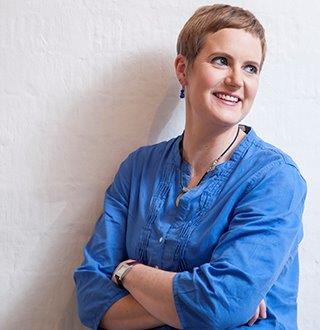Latest News Archive
Please select Category, Year, and then Month to display items
08 November 2024
|
Story Jacky Tshokwe
|
Photo Supplied
 The Kingdom Vision Foundation (KVF) management team took part in the annual Social Impact Innovation Awards organised by the SAB Foundation.
The Kingdom Vision Foundation (KVF) management team took part in the annual Social Impact Innovation Awards organised by the SAB Foundation.
In September, the Kingdom Vision Foundation (KVF) management team took part in the annual Social Impact Innovation Awards, organised by the SAB Foundation. This competition included a three-day workshop, during which participants received mentorship on enhancing their business models to maximise sustainable impact. Participants also crafted a four-minute business pitch, which they delivered to a panel of independent judges from sectors such as business, health, education, and government. At the end of the workshop, winners were chosen based on the impact of their innovation, the strength of their business model, and the likelihood of future success.
On 10 October, the management team attended the Innovation Awards Ceremony, where KVF was honoured with the Development Award worth R700 000. In addition to the grant, KVF will participate in a 15-month business coaching and mentorship programme in 2025, through which the SAB Foundation’s coaching team will support them in expanding and scaling their impact across South Africa.
The funding will enhance both the Kovsie Health and Anchor of Hope eye clinics, which are collaborating with the University of the Free State (UFS) Department of Optometry to provide affordable eye care to thousands of students and community members. The project aims to improve the quality of education for Optometry students, helping them experience the positive change they can drive through social impact. KVF’s vision includes a future at Kovsie Health where every student’s visual needs are met, regardless of financial constraints, and a thriving Anchor of Hope clinic that brings the gift of sight and renewed hope to rural communities around Bloemfontein.
#Women'sMonth: PSP provides scholarly support system for Prof Wilson-Strydom
2017-08-17

Prof Merridy Wilson-Strydom loves asking questions and
therefore has a strong focus on research.
She also enjoys supervising PhD students.
Photo: Sonia Small
Publishing her first book and receiving a rating from the National Research Foundation (NRF) are career highlights for Prof Merridy Wilson-Strydom. As an emerging scholar, the Prestige Scholars Programme (PSP) of the University of the Free State (UFS) played an important role in reaching these goals.
According to the Associate Professor in the Centre for Research on Higher Education and Development, the PSP provided an important scholarly support system, both through the coordinators and the other researchers who are part of the programme.
Writing retreats made book possible
“I found the support and advice provided during the process of applying for funding and rating really helpful,” she says about receiving a NRF C2 rating, based on her work over the past eight years.
She compliments the PSP writing retreats, which “provided a wonderful space for writing and it was during the writing retreats that I did a lot of the writing for my book that was published by Routledge in 2015.” Her book, University Access and Success: Capabilities, Diversity and Social Justice, moving back into academia from institutional research, working closely with undergraduate students as research participants, and postgraduate supervision, are all highlights of her work.
Her book makes a valuable contribution to higher education literature related to access and transition to universities. But, contrary to the mainstream approaches to access which rely on school performance and admissions tests, she poses the issue of social justice at the centre of the analysis.
Student project produces E-book
Another project headed by her and funded by the NRF Thuthuka Programme, was a study to understand the lives of 40 undergraduate students (on the UFS Bloemfontein Campus) who attended township high schools. The study had a particular focus on identifying institutional practices that either enable or constrain students’ capabilities for success in undergraduate study.
One of the outputs was the writing of an E-book called In our own words: Perspectives on being a student. It was written by 30 undergraduate students and the purpose was to provide a platform for students to tell their own stories about life as a student.